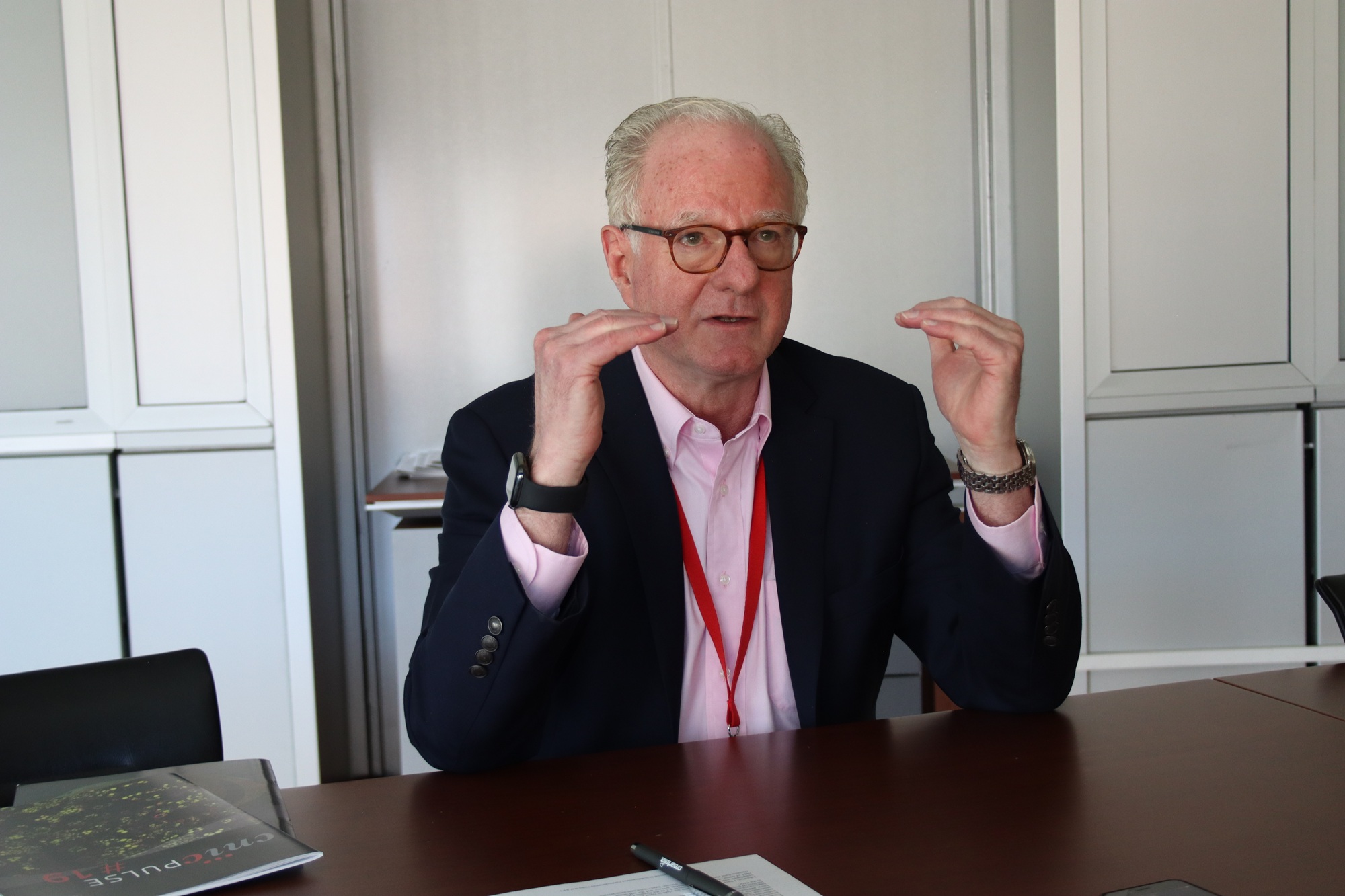Joseph Hill: "There are new obesity drugs, very famous ones, and they work quite well, but they’re not risk-free"
Dr. Joseph Hill holds the James T. Willerson, M.D., Chair in Cardiovascular Disease and the Frank M. Ryburn Jr. Chair in Cardiac Research at the University of Texas Southwestern Medical Center
Dr. Joseph Hill holds the James T. Willerson, M.D., Distinguished Chair in Cardiovascular Diseases and the Frank M. Ryburn Jr. Chair in Heart Research at UT Southwestern Medical Center, where he has been a faculty member since 2002. He earned his M.D. and Ph.D. degrees from Duke University, with a doctorate in cardiac ion-channel biophysics, followed by a postdoctoral fellowship in molecular neurobiology at the Institut Pasteur in Paris. He completed his residency and cardiology fellowship at Brigham and Women’s Hospital, Harvard Medical School, in Boston.
Dr. Hill’s research focuses on the molecular mechanisms of pathological cardiac remodeling and heart failure. He has published over 275 scholarly articles, co-edited the textbook Muscle: Fundamental Biology and Mechanisms of Disease, and contributed to 14 book chapters. A Fellow of the AHA, ACC, ISHR, and PVRI, Dr. Hill is also the founder of the ACC Council on Academic Cardiology and serves on multiple editorial boards. Among his many honors, he has served as President of the Association of University Cardiologists and has been elected to Alpha Omega Alpha and Association of American Physicians honorary societies. He currently serves as Editor-in-Chief of Circulation.
- What are your impressions about the CNIC Conference?
I think conferences like this, that bring together physicians and scientists, are vitally important. There’s been a longstanding divide between these two professional groups, and in some ways, they speak different languages. Physicians have one language, scientists another. But when you bring them together at a meeting such as this, new ideas emerge, and barriers come down; it’s incredibly important.
There are certainly many novel ideas being discussed. This is a very fast-moving field, a scientific field with real clinical relevance, and many of the talks here have had a translational component: “Here’s what we’re studying, but here’s how it may matter to patients.” That’s an important theme to maintain. Time will tell whether the discoveries presented here ultimately lead to therapeutic benefits. If I had to guess, I’d say some will, some won’t, and yet this dialogue between physicians and scientists is critical.
- Regarding the molecular mechanisms behind hypertrophic cardiac conditions, what recent discovery or direction excites you?
I’m a cardiologist, and my lab has always commenced our work with diseases that afflict human beings, drilling down into underlying mechanisms, wherever that takes us. One condition we’re currently focused on, which I spoke about this morning, is heart failure with preserved ejection fraction, or HFpEF. That’s different from hypertrophic cardiomyopathy. HFpEF is a disorder that’s exploding worldwide, closely tied to the global rise in obesity, which is transforming human health everywhere — in wealthy countries, poorer countries, East Asia, Africa, Southeast Asia; it’s truly global. We still don’t fully understand this syndrome, though we’re making progress, and we currently have zero therapies for it. It’s an urgent need, and probably half of my lab is working on it.
- So can we talk about two types of cardiovascular diseases, before and after obesity?
Yes, obesity causes several issues. It can lead to diabetes, which promotes atherosclerosis and heart attacks, which we’ve known for a long time. But what we’ve learned more recently is that obesity causes whole-body inflammation, called meta-inflammation, metabolism-related inflammation. My group discovered that in HFpEF, meta-inflammation is a major driving force. As obesity rises worldwide, we’re seeing more meta-inflammation, which leads to a range of diseases, not least of which is HFpEF.
- Do we have treatments for this new cardiovascular disease related to inflammation and obesity?
Not yet. There are new obesity drugs, very famous ones, and they work quite well, but they’re not risk-free. You need to take an injection every week for life (oral agents are being developed) and if you stop, the weight comes right back. They can also affect the gut, the eyes, and more; it's not a free lunch. The big question we’re asking is: If you lose 20 kilograms, will your diabetes go away? Sometimes. Will your blood pressure drop? Likely. Will your heart health improve? We don’t know yet. There have been some studies, and consistently over the last couple of years, we’ve seen that people feel better, they can walk faster, they have more energy. Medically, that shows up as a lower risk of being hospitalized again for heart failure, which is great. But so far, we’ve seen zero improvement in mortality.

- So maybe the solution is a combination of these new drugs, future drugs, and prevention?
Absolutely. Taking care of yourself, eating well, exercising, these are things we’ve known for 50 years. The new drugs are revolutionary, and I’m optimistic they may eventually improve mortality in HFpEF, but so far, that hasn’t been shown.
- You’ve been a cardiologist for 30 years. How has the treatment and management of patients changed with new diagnostic techniques and technologies?
Things have changed a lot. We have new procedures such as TAVR for replacing the aortic valve, and stents to open coronary arteries, each an incredible advance, and much more. As a result of all these advances, people now survive heart attacks. It used to be that 30% of people died from a heart attack; now it’s 3%. They survive, going home to their families and jobs, but their hearts are damaged, which has contributed to an explosion in heart failure cases. So compared to the past, we see fewer acute heart attacks and a lot more heart failure; it’s a new challenge.
- And the problem is the heart can’t regenerate. What does the future hold for these patients?
We have two types of heart failure: HFpEF, where we currently have no treatments, and HFrEF — heart failure with reduced ejection fraction, which develops after heart attacks, longstanding hypertension, or other disorders. For HFrEF, we now have eight or ten very effective treatments, and more exciting therapies are on the way. It’s still a serious condition, but we have many options. The challenge is getting patients to take five, six, or even eight medications daily. It’s hard for many, and in places like the U.S., it’s also expensive.
- I believe you know about the polypill, combining three drugs in one. Do you think that’s a good idea for these patients?
I do. There are a few polypill products being developed. For some populations, especially those with limited resources or who are reluctant to take medications, one pill a day is definitely a good idea. The downside is you can’t titrate, it’s the same dose every day, so that’s a limitation. But for certain patients, absolutely, it’s worth considering.
El Dr. Joseph Hill has participated in the CNIC Conference: 9th Annual Cardiovascular Bioengineering Symposium











